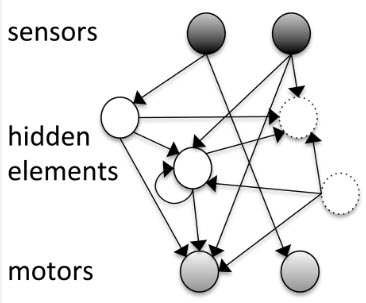http://journals.plos.org/ploscompbiol/article?id=10.1371%2Fjournal.pcbi.1004128
This abstract, as it was originally presented via one of the science aggregation websites, was about robots.
Except it wasn’t.  Not really.  I mean, “robots” is the end goal that most people will understand, but what these people are examining is the way that memories are written and rewritten.  They are examining adaptation of the learning process and how that can be applied to the idea of building neural networks.
Right now, when we build an AI, whether it be to assemble cars or act as an enemy in a videogame, it’s very task based. Â In an ultra-simplified form you get, “If this happens, you deliver that result.”
But this not only leaves holes in the logic (because what if THAT happens and you didn’t think of it beforehand?) but it makes the programming rigid. Â The AI can only operate according to the rules you have set, so if a dog runs into the automotive assembly factory, or a player decides to sneak around the left side of the building instead of the right, you end up with a broken situation.
There is a risk (seemingly) that as we continue to develop neural network based AI’s that this will get coded in there too. Â Not always on purpose, but because that is familiar ground. Â It is something we can test easily. Â It is something we can codify and deliver a clear result that can be shown to colleagues/investors, etc. to keep the funding and interest going.
But in order to truly make a neural net efficient at learning and executing new tasks, it’s got to retain the old tasks. Â It’s got to use the knowledge it already has the learn the new stuff even faster (rather than having it handed to them in the form of a programming block).





